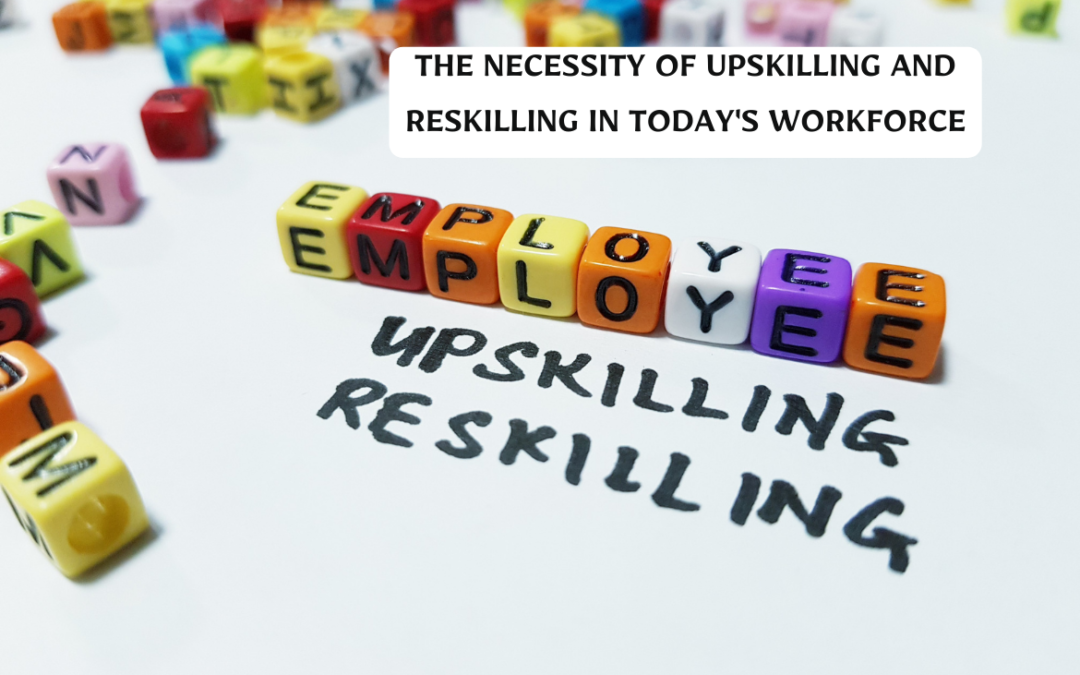The technology breakthroughs and the fast-growing requirements in our international labour market have set the stage for upskilling and reskilling to emerge as more critical than ever before. This article will focus on the role of upskilling and reskilling in the modern workforce as the landscape undergoes constant change.
Skill Displacement
In the fast movement of technological disruption and the progression of automation, the skills needed by many professions are changing rapidly. If something that seemed innovative at the time is no longer relevant now. It means that some skills are no longer needed, and a new set of capabilities is in demand effectively. As industries increasingly embrace artificial intelligence, machine learning, and other advanced technologies, individuals must develop these skills to keep pace.
The Importance of Upskilling
Staying Competitive in the Job Market:
A learner-centred approach to training is considered the most effective one. These days, a man who upskills stands out in the crowd of job-seekers. Employers attach great value to applicants who show passion for lifelong learning, as well as the ability to quickly respond to dynamic trends.
Future-Proofing Careers:
There is no doubt that as industries undergo an era-changing transformation, it is imperative to future-proof one’s career. The upskilling approach guarantees that the individuals will be adaptive and can face the demands of automation and other technological changes. That allows them to catch and turn to new opportunities and be very productive contributors to their firms.
Meeting Employer Expectations:
Employers start to ask for candidates with broad skill sets that are not limited by the basic functions of the job. Employees who are reskilled can provide more than the organisations require, and they help the business be among the competition due to the innovation they bring.
The Necessity of Reskilling
Adapting to Industry Shifts:
Skills acquisition refers to the process of learning new skills, which are, in most cases, triggered by large-scale industry changes. The whole sector is going through a transformation. Reskilling is important if one wants to be employable. People who take the initiative to upskill will find it easy to change their work profile in line with the fast-changing job positions.
Addressing Job Displacement:
Recent technological developments are likely to result in the abolition of jobs. Reskilling is a crucial factor for those in roles prone to automation. It gives them a chance to develop the skills needed in emerging industries, hence mitigating the career effect of job displacement.
Enhancing Professional Agility:
Quick adaptability is the most sought-after characteristic in the job market, which changes at a rapid pace. Through reskilling, a person can build a broad spectrum of skills and, hence, make himself almost an “all-rounder.” Adaptability does more than that; it provides new careers for individuals and also instils a culture of lifelong learning.
Organisational Benefits of Upskilling and Reskilling
Increased Employee Engagement:
Organisations that provide career development opportunities for their employees show such organisations’ concern for their employee’s well-being. This sets up a good workplace culture, which drives up employees’ engagement and satisfaction.
Innovation and Adaptability:
A worker with the right skills and adaptability is very important for organisations to be innovative and capable of adapting themselves. Trained and retrained employees are impetuses of fresh approaches. It fuels innovation and allows companies to stay creative as the world changes.
Talent Retention:
Staff tend to respect employers who invest in their employees’ career progression. Upskilling and reskilling programs enable workers to remain in the organisation longer by giving them a chance to advance within the workplace.
Conclusion:
Therefore, upskilling and reskilling are in demand now. And in the near future because the only thing that does not change is the change itself. People and organisations that focus on learning throughout their lives and place emphasis on skill development will have it easier to adapt to drastic changes in the current labour market. By the time we get to a more and more automated workforce. We should all be ready to make changes and develop.


Recent Comments